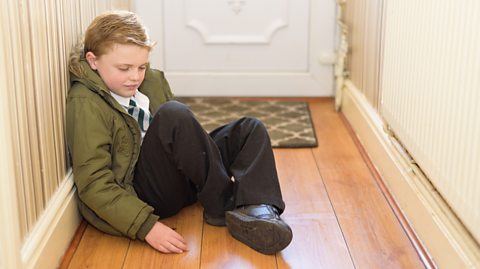When the actor and TV presenter Joe Swash was old enough to start living independently, his mum Kiffy embarked on a different sort of challenge - that of a foster parent.
It’s given the former EastEnders star an insight into the UK care system, which he explores further in the BBC One documentary Joe Swash: Teens in Care. As well as hearing about his mum’s experiences, the programme sees Joe meeting young people at home with a foster family, in a children's home, or just starting to find their own feet after living in care.
In an interview with Parents’ Toolkit, Joe expresses how he hopes the film would encourage more new foster parents to come forward - a parenting journey that he, one day, hopes to start himself.
And if fostering sounds like a step you’d like to take, Joe has some advice - as does The Fostering Network, a charity working with all those involved in the process - from parents and children to social workers and other individuals…
Joe Swash shares his experience of being part of a family that fosters children.
Joe: We’ve watched my mum be a foster carer for like, the last 10/11 years, and we’ve watched how it works, the ups and the downs and stuff, and the benefits, you know, like, we’ve got Daniel who came to us when he was eight and now he’s in university and he will be with us forever.
We wanted to be involved. We wanted to love him and be involved and show him all the benefits of life and having a family around that’s going to support you and love you.
Title Card: Joe Swash: Teens in Care
Joe: We always say, ‘You made all your mistakes on us, Mum!’ because Daniel gets fed, cleaned, ironed, picked up – like, he’s like a little prince. And me and my sisters – we don’t resent it, we want him to have that because we know that he’s missed out on that and how lucky we are, so yeah. It just really works well with our family.
It was interesting to see how it works outside of our family, you know, and meet some of the kids that are going through it… and I found the whole journey really, really educational and emotional.
Joe: I think you need to realise that every child is an individual, and every child’s case is completely different…and like my mum said you can’t expect these kids to come running down the hallway with open arms. They don’t trust you, they don’t really trust a lot of adults. So, you know, you’ve got to build up your trust with them and once they realise that they’re going to play up and be naughty -and you’re not going to send them away to another home - then a little bit more trust builds up, and before you know it, you’ve got a young man like Daniel. But there is a journey to that. Anyone that’s going to go on this journey and this process, it’s the most worthwhile thing you can ever possibly imagine doing.
Beginning the fostering journey
“So with me, my mum and my sister,” Joe begins, “we’ve watched my mum being a foster carer for the past 10 or 11 years and we’ve watched the ups and the downs and stuff, and the benefit is we’ve got Daniel (Joe’s foster brother), who came to us when he was eight and he’s now in university and he’ll be with us forever.”
Sarah McEnhill, Head of Practice at The Fostering Network, explains the process of how foster children first arrive in someone’s home, and that it can take time, while the organisation works alongside a social worker to review potential fosterers.
“It will be quite rigorous because they want to make sure you’re right to care for a child or young person. The social workers will visit and spend a bit of time getting to know you and who you are as a person.”
Applicants can expect to be asked about their health and fitness levels, their own upbringing, experiences in education and also a criminal record check. Sarah is keen to point out that none of this is designed to catch anybody out: “It’s not to discriminate against anybody. It’s just to look at what your lifestyle is. If there are any any considerations to be made, that can be accounted for as well.”
Challenges and reality checks
Joe is not a foster parent himself, although he is aware, mainly through his mum, of some of the challenges they face. He said: “For us, Daniel, he’s been such a pleasure to bring up you know, he’s been such a lovely young man but not everyone is going to be like that."
“Some kids are going through some awful circumstances, so they’re going to play up and there’s going to be times when they test your patience… But you’ve just got to treat them like they’re your own kids because your own kids are going to test your patience and they’re going to play up as well.”

Sarah continues: “You might come into it with good intentions to rescue a child, perhaps, but actually the children will come from varied experiences and [from some] real trauma.
“Children can feel guilty about forming a bond with their carer, because Mum or Dad are still there and still in touch with them. It’s important for carers to work alongside parents as well, in spite of maybe what’s happened to the child. You’ve got to show that child that you’re there for all of them.”
This chimes with something Kiffy says to Joe at the beginning of his documentary…
“Like my mum says, you can’t expect these kids to come running down the hallway, open arms. They don’t trust you. They don’t really trust a lot of adults.
"You’ve got to build up your trust with them and once they’ve realised that, they’re going to play up and be naughty, and you’re not going to send them away to another home - then a little bit more trust builds up and before you know it, you have a young man like Daniel, but there is a journey to that.”
When you already have children - at home or otherwise
Inviting a new child to stay in your home is a big change, but perhaps even more so for any children or young people who are already living there with you.
As well as any emotional adjustments children need to make regarding a new arrival, Sarah points out the practicalities involved too: “If you’ve already got younger children in the house there will be changes in the day-to-day life. Your time is going to be divided more, as there will be more people there. An awful lot of the time the social worker is there, and meetings might take place.”
It could be worth bearing in mind that everyday events, such as helping the kids with their homework will need more time to ensure all the children under your roof get a fair share of attention. You could also find yourself fitting in more clubs and sporting activities to the family schedule.
Depending on the age of the child or children coming into your care, there will be considerations on privacy, as well as more logistical considerations - for example, ensuring everyone can get in and out of the bathroom in good time each morning.

For Joe and his siblings, the fostering happened after they had left home. He said: “I think my mum obviously sat us down at one point and said look, I’m going to get into foster care - because she had to go through a lot of training and stuff.
“I think for me and my sisters, my mum was more worried that we would feel a bit resentful, you know. Someone was taking time and energy away from us that we should be having from our mum, but it was completely the opposite.
"We know how lucky we are to have been brought up the way we did and to have an amazing dad for the time that we did (his father, Ricky, passed away when Joe was 11 years old) and to have a mum who brought us up after that, incredibly.”
He adds, referring to all the children his mum has fostered: “We wanted to love them and get involved and show them all the benefits of life and having a family around you that’s going to support you… So I’d say we’re all sort of foster carers. We’ve all brought Daniel up in our own little way.”
Why it can all be worth it
Regular parenting isn’t always easy, so perhaps there’s no reason to suggest that fostering is going to be any less difficult. Despite the many challenges foster parents may face or the hurdles they may have to clear, both Joe and Sarah agree on how worthwhile it can be.
Sarah says: “It has got good times and bad times, ups and the downs, but that’s what parenting is all about. The frustrations tend to be with the system more, [but] the rewards still come through. That’s to do with the children. They may be quiet, then they’re opening up, starting to speak, you’re seeing you’ve made a difference. Being there at their side, to help them to get there. That’s often why we hear foster carers stick at it.”
Joe adds: “We always say to Mum, you made all your mistakes on us, because Daniel gets fed, cleaned, ironed, picked up, he’s like a little prince. Me and my sisters, we don’t resent it, we want him to have that. We know he’s missed out on that and how lucky we are.
“It just really works well with our family.”

Joe Swash: Teens in Care is on BBC One on Tuesday 11th July and BBC Three on Monday 17th July. You can also watch it on BBC iPlayer.
Joe and Kiffy talk more about their experience of the care system in this BBC News article

Parents' Toolkit
Fun activities, real-life stories, wellbeing support and loads of helpful advice - we're here for you and your child.

Let's Talk Child Mental Health with Dr Ranj and Netmums
Dr Ranj discusses stigma around child mental health with Netmums Editorial Director Jennifer Howze and Cathy Parsley, a Netmums Parent Supporter with expertise in child mental health
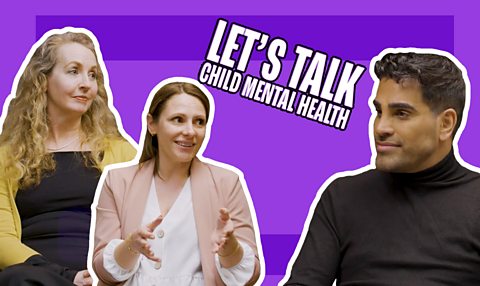
Dr Ranj Reacts to Never Ever Has My Child
We showed Dr Ranj some films from our intergenerational 'Never Ever...' series. He reacts to the films and offers advice to parents around mental health stigma.
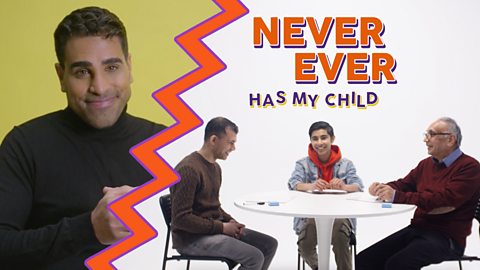
How to tackle anxiety with Dr Anna
Calming techniques to help parents and children manage their anxiety.
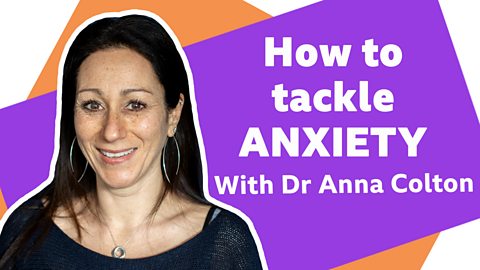
Five tips to handle the after-school ‘meltdown’
Expert advice on how to cope with after-school restraint collapse as a parent.
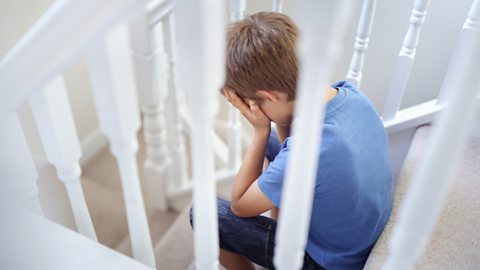
School anxiety and refusal: How to help your child get through tough times
Tips to help parents understand emotionally-based school avoidance and offer support to their child.
